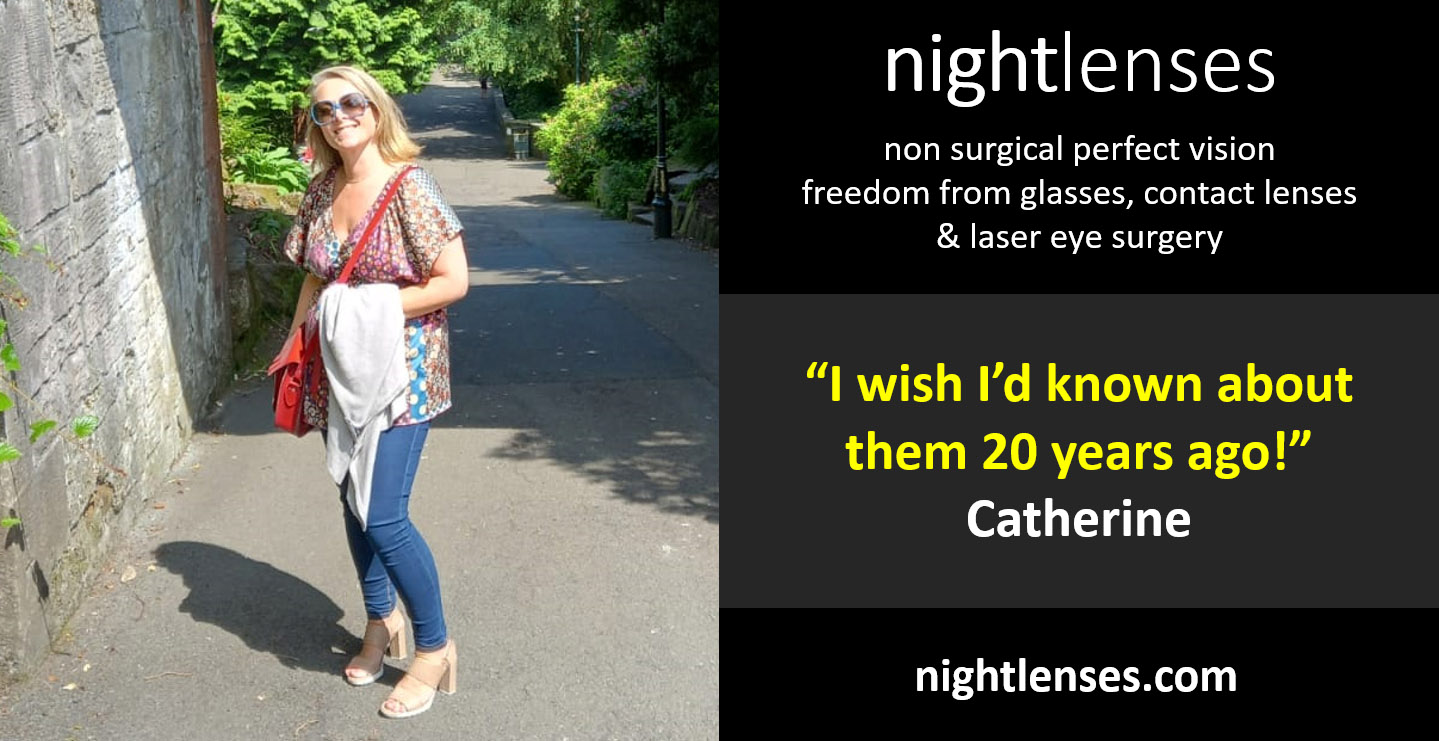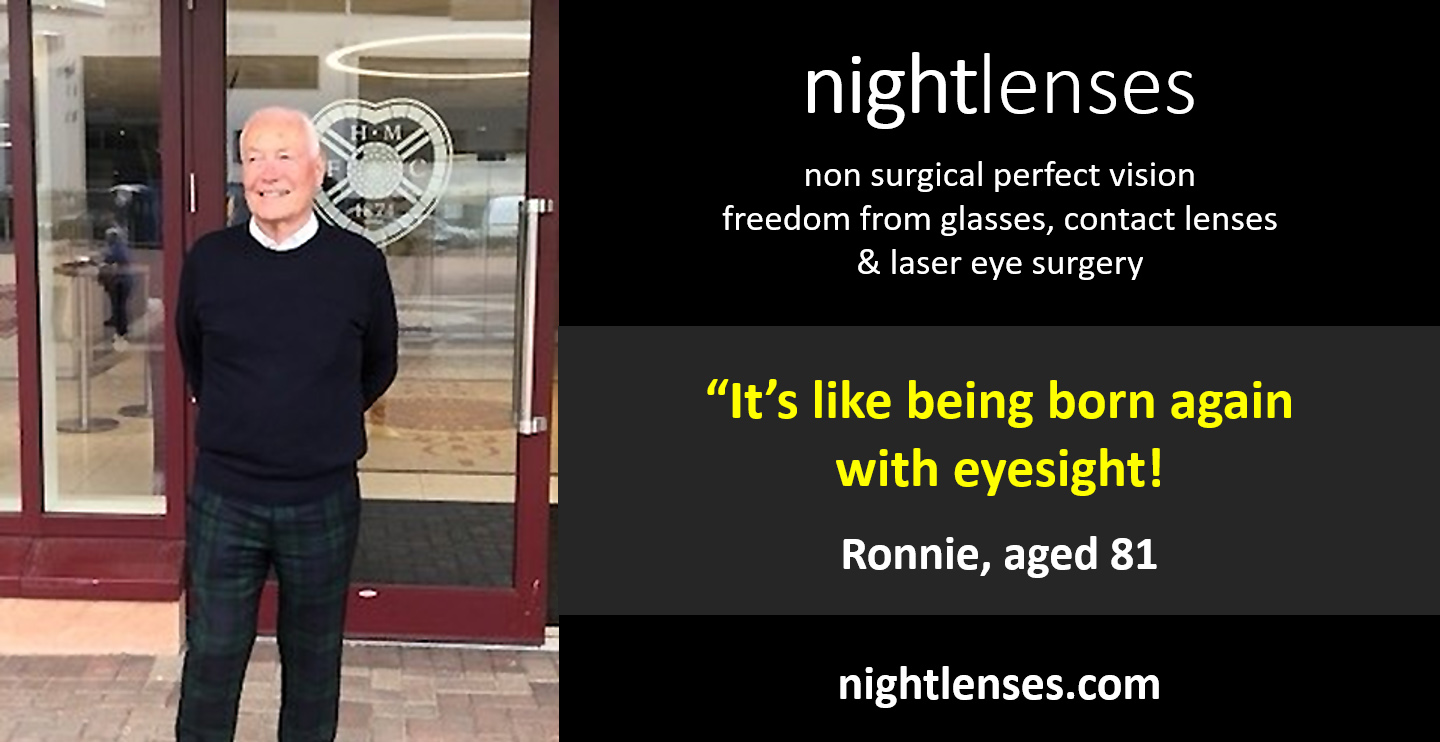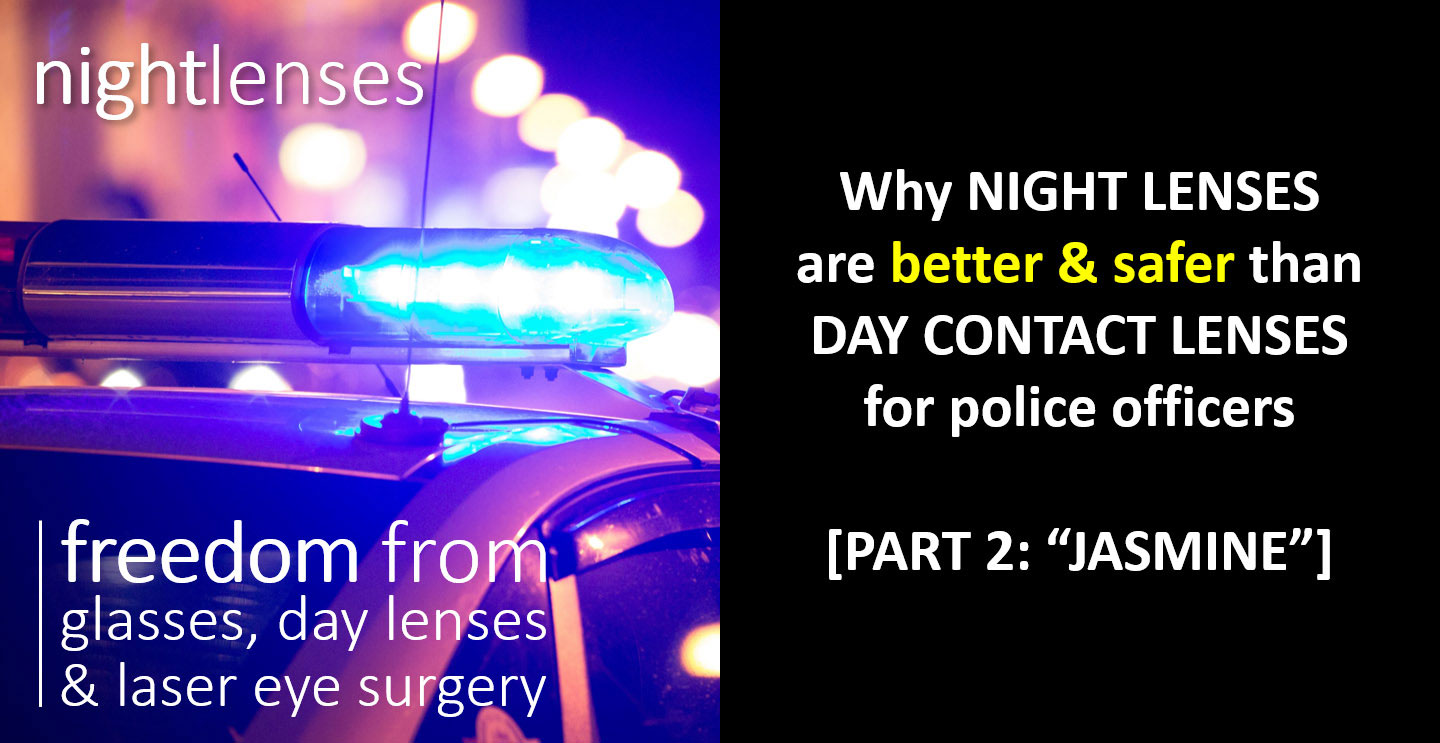Police
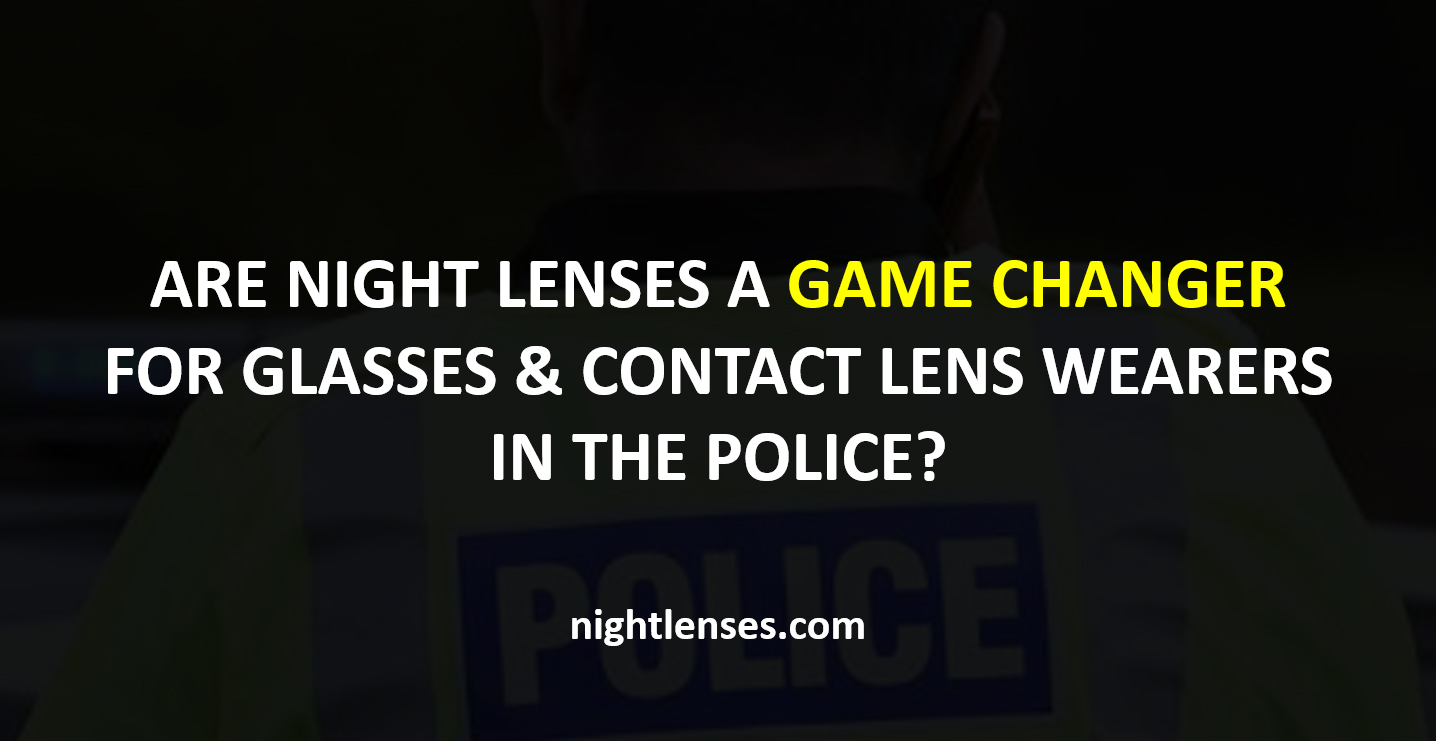
Are NIGHT LENSES a game changer for contact lenses & specs wearers in the Police?
Let’s compare GLASSES vs. CONTACT LENSES vs. LASER EYE SURGERY.
For many short-sighted police officers on the job, choosing between glasses and contact lenses is pretty straightforward. Glasses can easily get knocked off or become ineffective in violent, wet, steamy, or tight situations. Plus, they can fog up when you’re wearing PPE gear—a modern annoyance.
That’s why contact lenses often seem like the obvious choice, or sometimes the only option, especially when the thought of laser eye surgery going wrong or the financial cost makes Lasik a non-starter.
AT WORK: If you wear contact lenses, you know they come with their own set of issues. They can pop out in violent situations or be affected by PAVA spray (putting you at risk). After long shifts, they can dry out and itch, affecting your focus and alertness. They can also get irritated easily by dust, sawdust, grit, sand, or airborne irritants during searches. And if you need to wear a CBRN suit, it gets even more complicated.
OFF DUTY: When you’re not working, they can fall out during intense workouts or sports activities, and you need prescription goggles for swimming. Hot tubs can lead to infections, and they limit your spontaneous beach and pool fun on vacations. It’s a constant hassle to think about what you can or can’t do throughout the day.
But is there a better option? Absolutely!
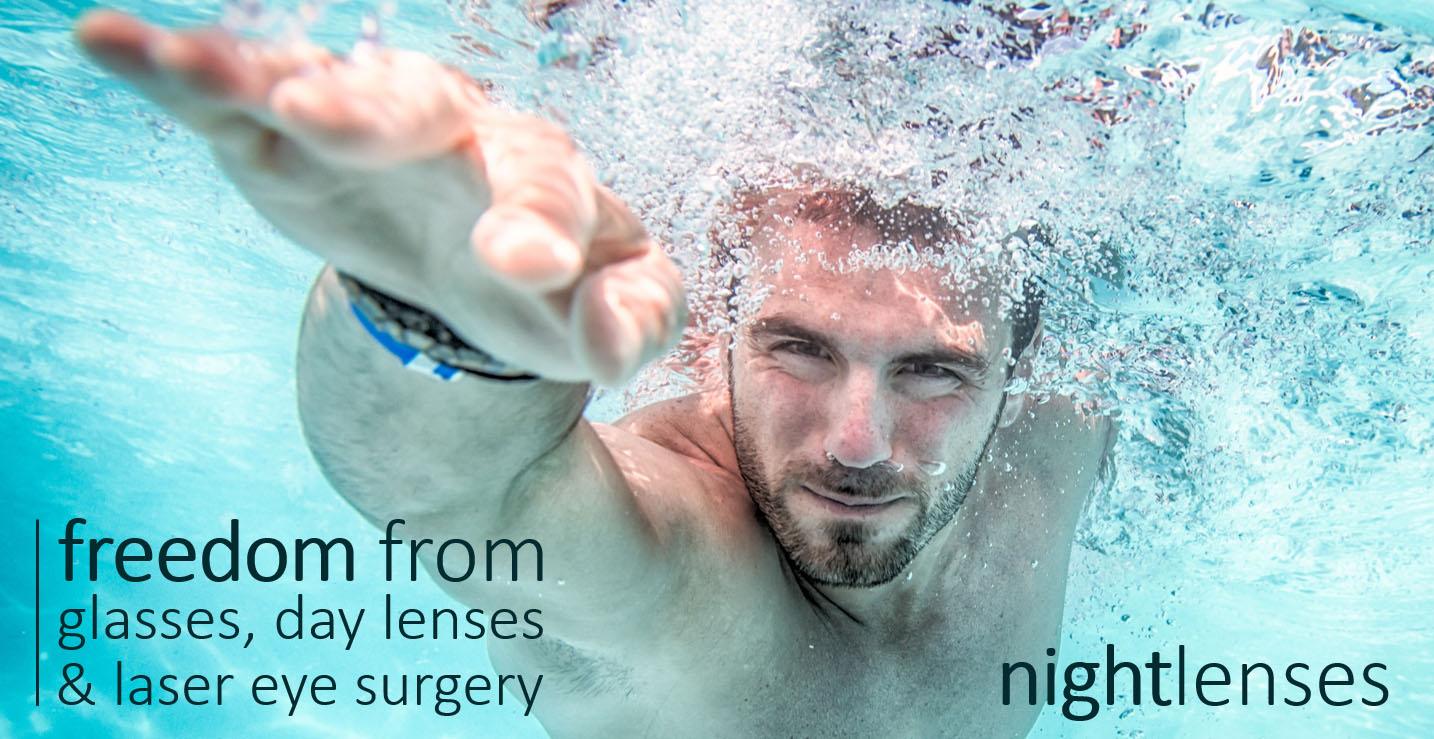
NIGHTLENSES are custom-made contact lenses that fix your short-sightedness while you sleep. You wake up, take them out, and enjoy perfect vision all day long. No need for glasses or daytime contact lenses, and no laser eye surgery required. The future of eye care is about seeing clearly without anything in your eye or on your face, and it’s here now.
The science behind this is called Orthokeratology or ‘Ortho-K’ lenses, which have been around for about 20 years. As you sleep, the outer layer of your cornea naturally sheds, just like your skin. The new layer molds into the lens, giving you a cornea shape that allows light to focus naturally, giving you perfect vision when you take them off in the morning. It’s a safe, non-permanent process that you repeat every night. [Check out a 1-minute demo of how they work here].
With night lenses, there’s no risk of dislodging them during altercations, no worries about PAVA, dust, or grit, and you can open your eyes underwater or in the shower. You won’t suffer from dry or itchy eyes after long shifts, and you can go from a sweaty HIIT class to the sauna, jacuzzi, and shower without a second thought. You can even get down and dirty on the rugby field, swim freely, and play on the beach with the kids, all before spontaneously jumping into the sea.
It’s a way to be normal.
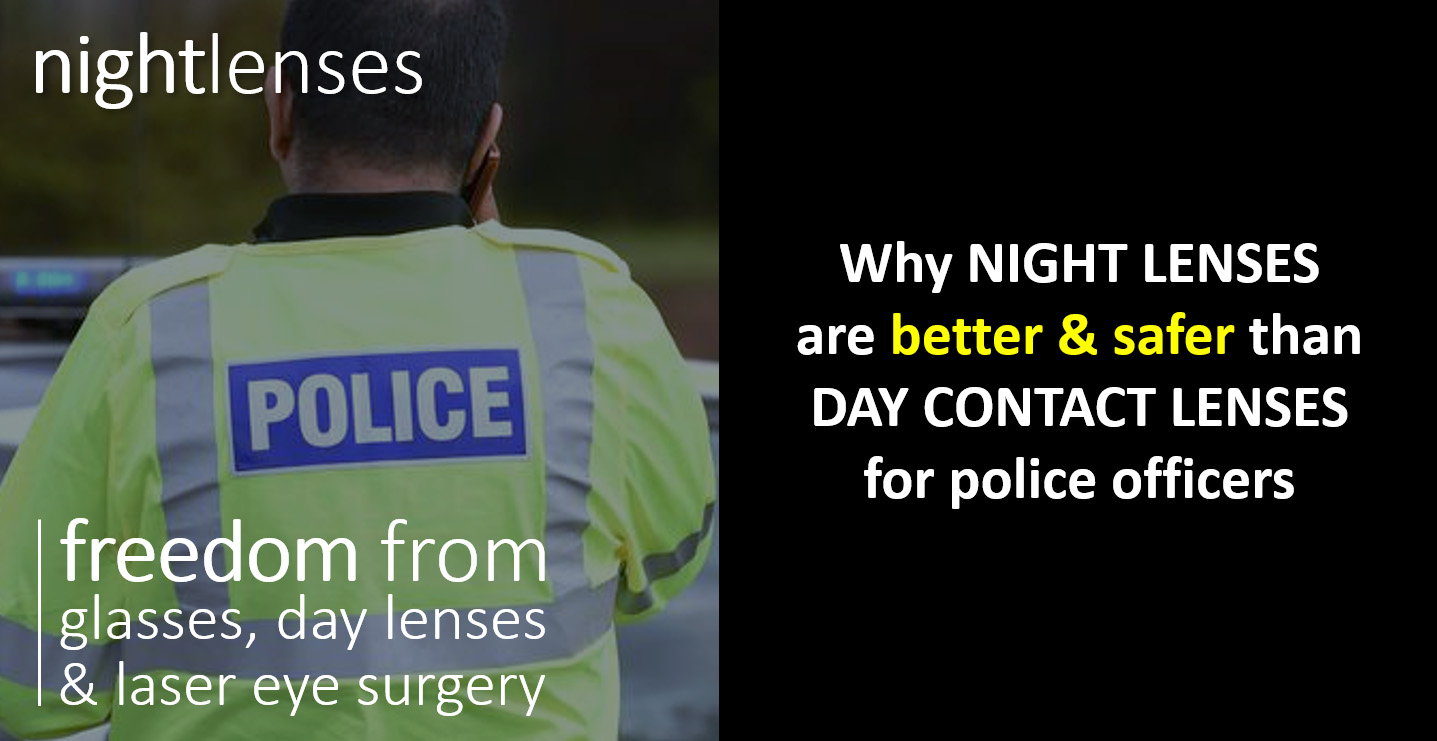
We spoke with three police officers who use night lenses to give their colleagues who wear daytime lenses and glasses an idea of what it’s like:
‘John’ worked with TSG in Belfast. (Read “John’s” story: glasses > contacts > night lenses)
‘Jasmine’ has a specialist role in The Met. (Read “Jasmine’s” story: glasses > contacts > laser [lasted 15 years] > night lenses)
“Sarge” is a Sergeant in Birmingham’s City Centre police team. (Read Sarge’s story: contacts > night lenses)
John and Jasmine remain anonymous due to their roles, and Sarge preferred to stay anonymous as well. But all three agree that, in their view, night lenses are better and safer for short-sighted police officers (those under -6D) compared to daytime contact lenses and glasses.
- Cost: Equivalent to daytime lenses
- Environmental impact: Just two lenses to landfill per year (yay!) vs. 720+ daytime lenses (boo!)
- Health & safety: No concerns since there’s nothing in your eyes, and the effect can last up to 48 hours without a top-up
- Cost to the force (supplement): Equivalent to daytime lenses, but no extra spending on CBRN gear for contact lens wearers
- New and unproven? They’ve been around for 20 years, with the first UK CE device in 2003. They’re widely used in the Netherlands and other countries, with recent growth in the UK.
- Can kids use them? Yes, they can help control myopia and reduce future risks of eye disease. WATCH Rhys, age 8, see for the first time without glasses.
- Does my optician offer them? Many do – ask your optician about night lenses or find a qualified fitter below.
Head round this site for further info, stories and to find your nearest fitter, or quick links to the main stuff below
How do night lenses work – a simple, quick animation demo
Other night lens stories – world champion athlete, watersports, mums, dads and kids
Where is my nearest fitter?

